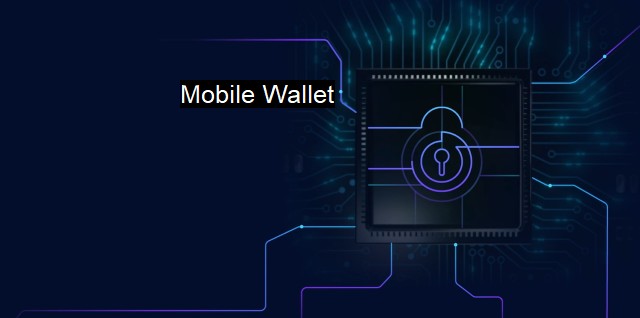What is Mobile Wallet?
The Evolution of Mobile Wallets: Securing Digital Assets for Secure, Convenient Transactions
A mobile wallet is a digital version of the traditional physical wallet that allows individuals to carry their cash digitally. With the widespread use of smartphones, mobile wallets have become increasingly popular for their convenience, simplicity, and efficiency. A mobile wallet can carry all sorts of data that a traditional wallet would have encompassed, such as credit cards, debit cards, coupons, tickets for events, and much more.Mobile wallets offer significant security features that make them a great alternative to traditional wallets. One of these features include encryption. Encryption is a security measure that involves encoding data so that only authorized individuals can access it. It is a vital component of mobile wallets as it assures users that their personal and financial information is safe from cybercriminals.
Another key safety feature of mobile wallets is tokenization. This involves the replacement of a card's numbers with a unique code (token) for the transaction. The original card details are held securely by the mobile wallet provider, reducing the risk of a data breach. The combination of tokenization and encryption gives mobile wallets a hefty advantage over traditional means of payments in terms of security.
Despite the layers of security in place, mobile wallets are not entirely immune to cyber threats, either through app vulnerabilities, malware, or phishing attacks. Therefore, supplementing the existing security features of mobile wallets with antivirus software for mobile devices is inevitable to safeguard against potential fraudulent activities. When it comes to mobile wallets, the cybersecurity strategy should focus on prevention, detection, and remediation.
Antivirus solutions have now evolved to meet this new challenge, adopting technologies such as machine learning and AI to anticipate and neutralize threats. Antivirus software vendors provide solutions that not only include the traditional protection against viruses but also other layers necessary to tackle contemporary online threats. they can protect the device against ransomware, which is a growing threat in the mobile environment, particularly for financial applications, such as mobile wallets.
Users should be vigilant when using their mobile wallets. They should make sure they only download and install applications from trusted sources, such as the Google Play Store or Apple App Store. Checking the permissions that the application requires is also crucial to ensure that the application only has access to information that is strictly necessary for its operation.
Enabling two-factor authentication (2FA) can add another line of defense. This asks the users to go through an extra step of verification before being granted access to their wallet, such as entering a code sent to your mobile number or email, ensuring that even if a cybercriminal successfully gains access to the user's mobile wallet credentials, they would still need the second factor to complete unauthorized transactions.
Mobile wallets are a defining feature of the contemporary digital landscape, making life easier for millions of people worldwide. their convenience and efficiency should not detract users from their potential security vulnerabilities. For this reason, rigorous cyber defenses, such as encryption, tokenization, and anti-virus software, are crucial to protecting sensitive information from cyber threats. Balancing the efficiency of mobile wallets and securing them from cybercriminals is of utmost importance.

Mobile Wallet FAQs
How secure is a mobile wallet?
Mobile wallets use various security measures to protect your sensitive information, including encryption, PIN or fingerprint authentication, and tokenization. However, it is important to make sure you choose a reputable mobile wallet provider and follow good security practices like using strong passwords and avoiding public Wi-Fi when making transactions.Do I need an antivirus on my phone to use a mobile wallet?
While it is generally recommended to have antivirus software on your phone to protect against malware and other security threats, it is not a requirement for using a mobile wallet. However, it is important to keep your phone's operating system and apps up to date to ensure they have the latest security patches.Can a hacker steal my money from my mobile wallet?
While it is possible for hackers to steal money from a mobile wallet, it is rare when using a reputable mobile wallet provider and following good security practices. Mobile wallets use encryption and other security measures to protect your information, and most also offer fraud protection measures in case your account is compromised.What should I do if I suspect unauthorized activity on my mobile wallet?
If you notice any unauthorized transactions or suspicious activity on your mobile wallet, you should immediately contact your mobile wallet provider to report the issue and have them help you secure your account. You should also monitor your bank statements and credit reports for any signs of identity theft, and consider adding additional security measures like two-factor authentication to your account.| | A | | | B | | | C | | | D | | | E | | | F | | | G | | | H | | | I | | | J | | | K | | | L | | | M | |
| | N | | | O | | | P | | | Q | | | R | | | S | | | T | | | U | | | V | | | W | | | X | | | Y | | | Z | |
| | 1 | | | 2 | | | 3 | | | 4 | | | 7 | | | 8 | | |||||||